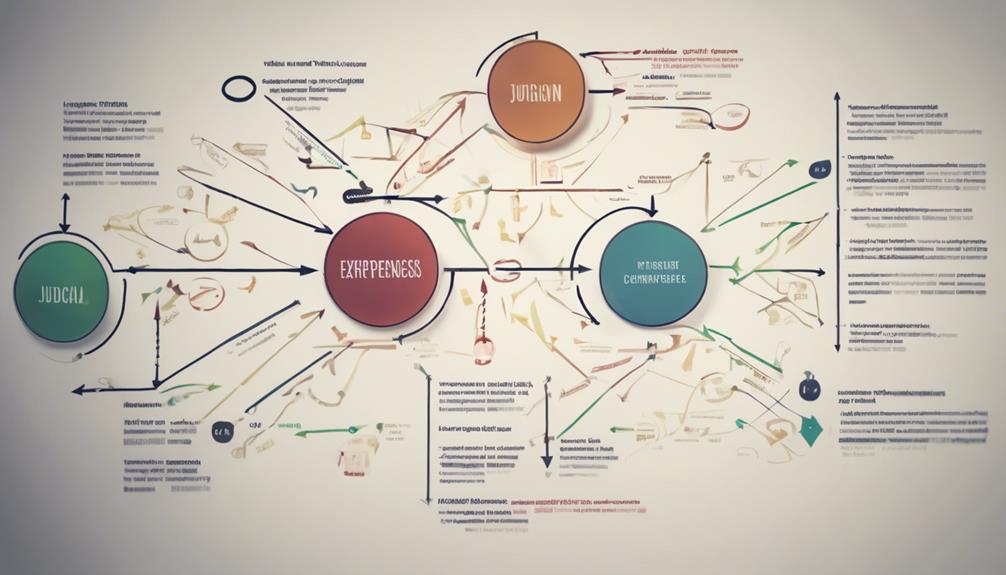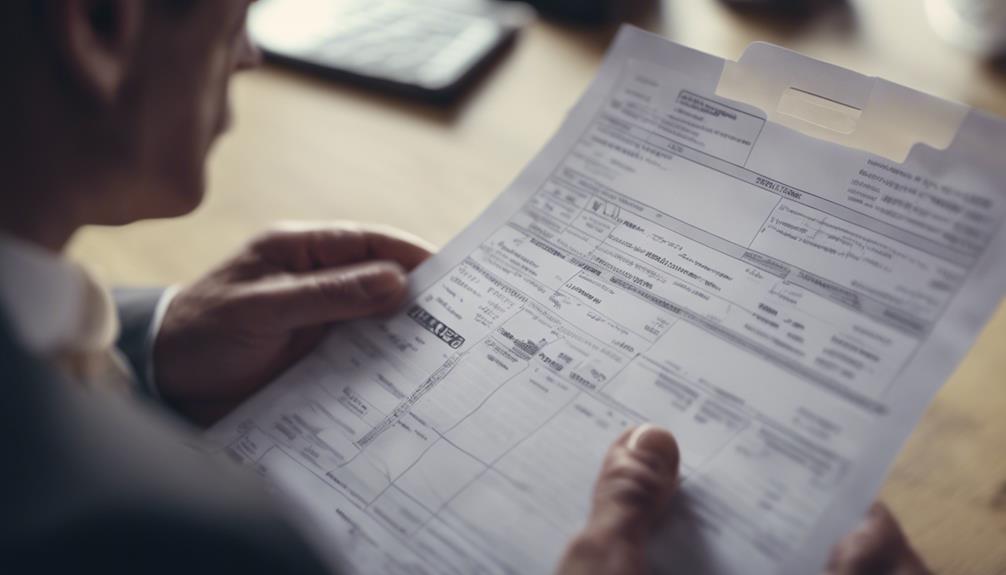Understanding the intricacies of the judicial costs system is paramount for individuals navigating the legal landscape. By dissecting the various components that contribute to the overall expenses, one can gain clarity on the financial implications of legal proceedings.
However, merely identifying these costs is just the initial step in the process. It is equally crucial to delve into the nuances of court fees, attorney billing practices, and strategic cost-management techniques to ensure a favorable outcome.
An informed approach to managing judicial costs can ultimately lead to more efficient and cost-effective legal solutions.
Understanding Judicial Costs Components

When delving into the realm of judicial costs, it is crucial to comprehend the intricate components that contribute to the overall financial obligations within the legal system.
Court fees and legal expenses are fundamental elements that individuals or entities involved in legal proceedings must consider. Court fees are charges imposed by the court for services such as filing a case, requesting documents, or scheduling hearings. These fees vary depending on the type of case and the court in which it is filed.
Legal expenses, on the other hand, encompass the costs associated with hiring legal representation, conducting legal research, obtaining expert opinions, and other professional services required to navigate the legal process successfully.
Understanding these components is essential for individuals or organizations engaging in legal matters to effectively plan and manage their financial resources. By having a comprehensive understanding of court fees and legal expenses, parties can make informed decisions, anticipate potential costs, and avoid financial surprises throughout the legal proceedings.
Identifying Applicable Court Fees
Court fees in the judicial system play a crucial role in financing court operations and services. Understanding the breakdown of court fees is essential for individuals navigating the legal system.
Court fee breakdowns typically include filing fees, motion fees, jury fees, and various other charges depending on the type of case and court jurisdiction. To accurately estimate court costs, individuals can utilize cost estimation techniques such as reviewing fee schedules provided by the court, consulting with legal professionals, or utilizing online resources that outline typical court fees for different case types.
Evaluating Attorney Billing Practices

Assessing the transparency and efficiency of attorney billing practices is essential for individuals seeking legal representation. When evaluating attorney billing practices, it is crucial to inquire about billing transparency to ensure a clear understanding of how fees are calculated and billed. Transparency in billing practices helps clients understand the breakdown of costs, such as hourly rates, retainer fees, and any additional expenses that may be incurred throughout the legal process.
Moreover, it is important to discuss fee structures with potential attorneys to determine whether they offer different billing options, such as flat fees, contingency fees, or hybrid arrangements. Understanding the fee structure will help clients anticipate costs and make informed decisions regarding their legal representation. Clients should also inquire about the frequency of billing and the methods of payment accepted by the attorney or law firm to avoid any misunderstandings or delays in payment processing.
Negotiating Cost-Effective Legal Solutions
In seeking legal representation, prioritizing negotiations for cost-effective legal solutions is paramount for optimizing financial resources and achieving favorable outcomes.
When aiming to minimize expenses in legal matters, engaging in proactive discussions with legal professionals regarding fees and exploring alternative fee arrangements can be beneficial.
Implementing budgeting strategies is crucial to ensure that legal costs align with financial capabilities. One effective approach is to establish a clear budget at the outset of legal proceedings and regularly monitor expenses to stay within the set financial limits.
Additionally, considering the use of cost-saving measures such as mediation or arbitration instead of costly litigation can lead to significant savings.
Collaborating closely with legal counsel to explore cost-effective options, negotiate fee structures, and leverage available resources can contribute to a more efficient and financially sustainable legal process.
Monitoring and Controlling Expenses

Amidst the complexities of legal matters, maintaining a vigilant approach to monitoring and controlling expenses is essential for prudent financial management. Tracking expenses is a fundamental aspect of this process. By diligently recording and categorizing all costs incurred during legal proceedings, individuals and organizations can gain a comprehensive overview of their financial outflows. This tracking not only helps in understanding where the money is being spent but also enables the identification of potential areas for cost-saving.
In addition to tracking expenses, implementing effective budgeting strategies is crucial. Setting a clear budget at the outset of legal procedures can provide a financial roadmap, helping to allocate resources efficiently and avoid unnecessary expenditures. Regularly reviewing and adjusting the budget as needed is also essential to ensure that expenses are kept in check.
Frequently Asked Questions
How Can I Determine if I Am Eligible for Any Fee Waivers or Reductions When Navigating the Judicial Costs System?
Determining eligibility for fee waivers involves assessing personal financial circumstances, case details, and court policies. Individuals may qualify based on income, hardship, or specific criteria. Initiating this process early and providing accurate documentation is crucial.
Are There Any Alternative Funding Options Available to Help Cover Legal Expenses Besides Traditional Payment Methods?
When seeking alternative funding options to cover legal expenses, individuals can explore crowdfunding platforms, litigation finance providers, legal aid organizations, and pro bono services. These avenues offer financial support and assistance beyond traditional payment methods.
What Steps Can I Take to Dispute or Challenge a Legal Bill That I Believe Is Inaccurate or Unreasonable?
When faced with billing disputes, negotiation is key. Initiate a legal bill audit and review process to challenge any inaccurate or unreasonable charges. Present evidence, raise concerns, and seek resolution through open communication and documentation to address discrepancies effectively.
How Does the Process of Taxation of Costs Work, and What Are the Implications for Both Clients and Attorneys?
The taxation process of costs involves a detailed review to assess the reasonableness of legal fees. Implications for clients include potential cost reductions, while attorneys may need to justify billings. Transparency and adherence to guidelines are crucial.
Is There a Time Limit for Seeking Reimbursement of Costs Incurred During Legal Proceedings, and What Are the Potential Consequences of Missing This Deadline?
There is typically a time limit for seeking reimbursement of costs incurred during legal proceedings. Missing this deadline can result in the loss of reimbursement eligibility, potentially causing financial burden for both clients and attorneys.
Conclusion
In conclusion, navigating the judicial costs system requires a thorough understanding of its components.
Identifying applicable court fees, evaluating attorney billing practices, negotiating cost-effective legal solutions, and monitoring and controlling expenses are crucial steps.
By following these steps, individuals can effectively manage and minimize the financial burden associated with legal proceedings.







